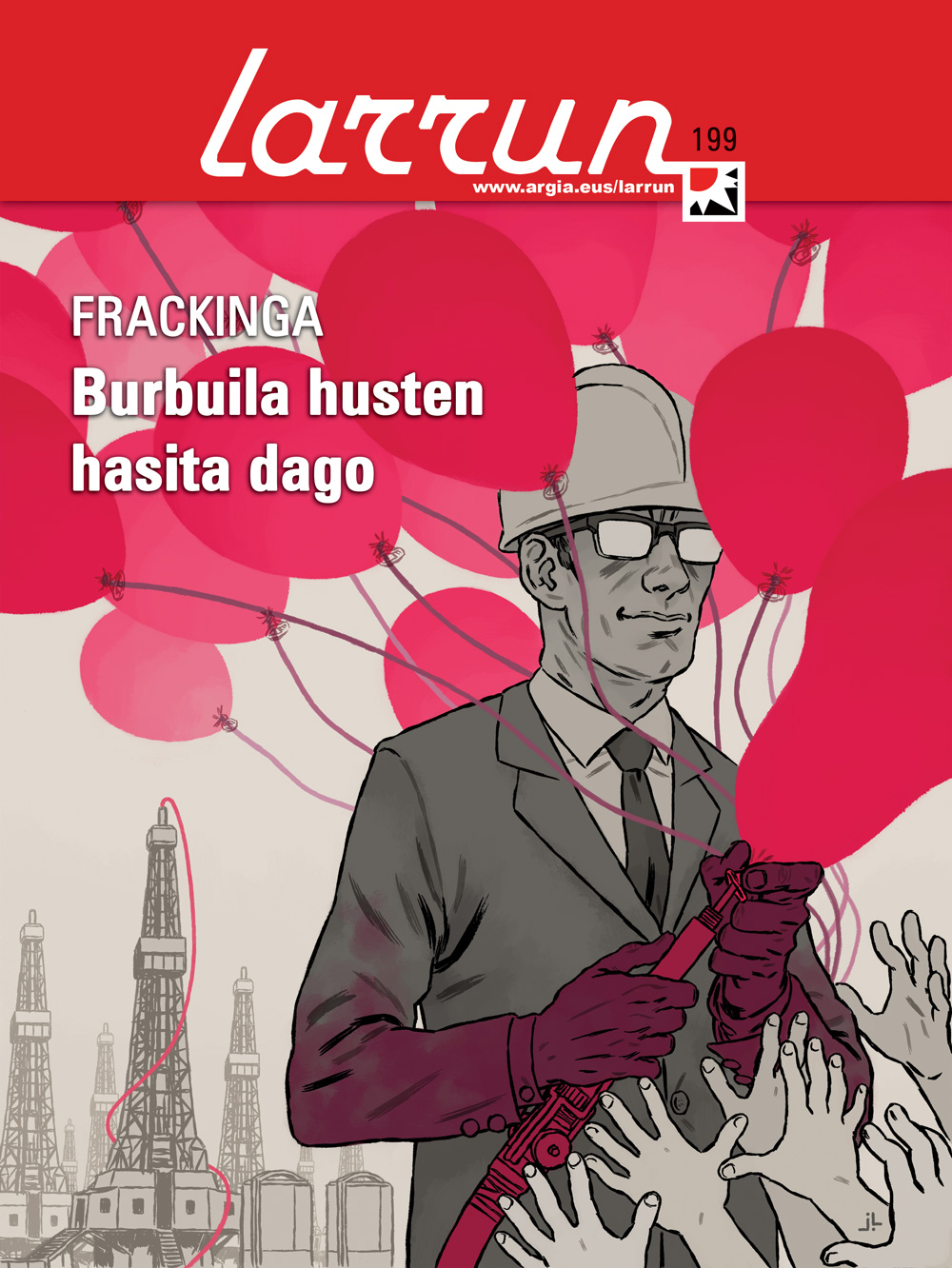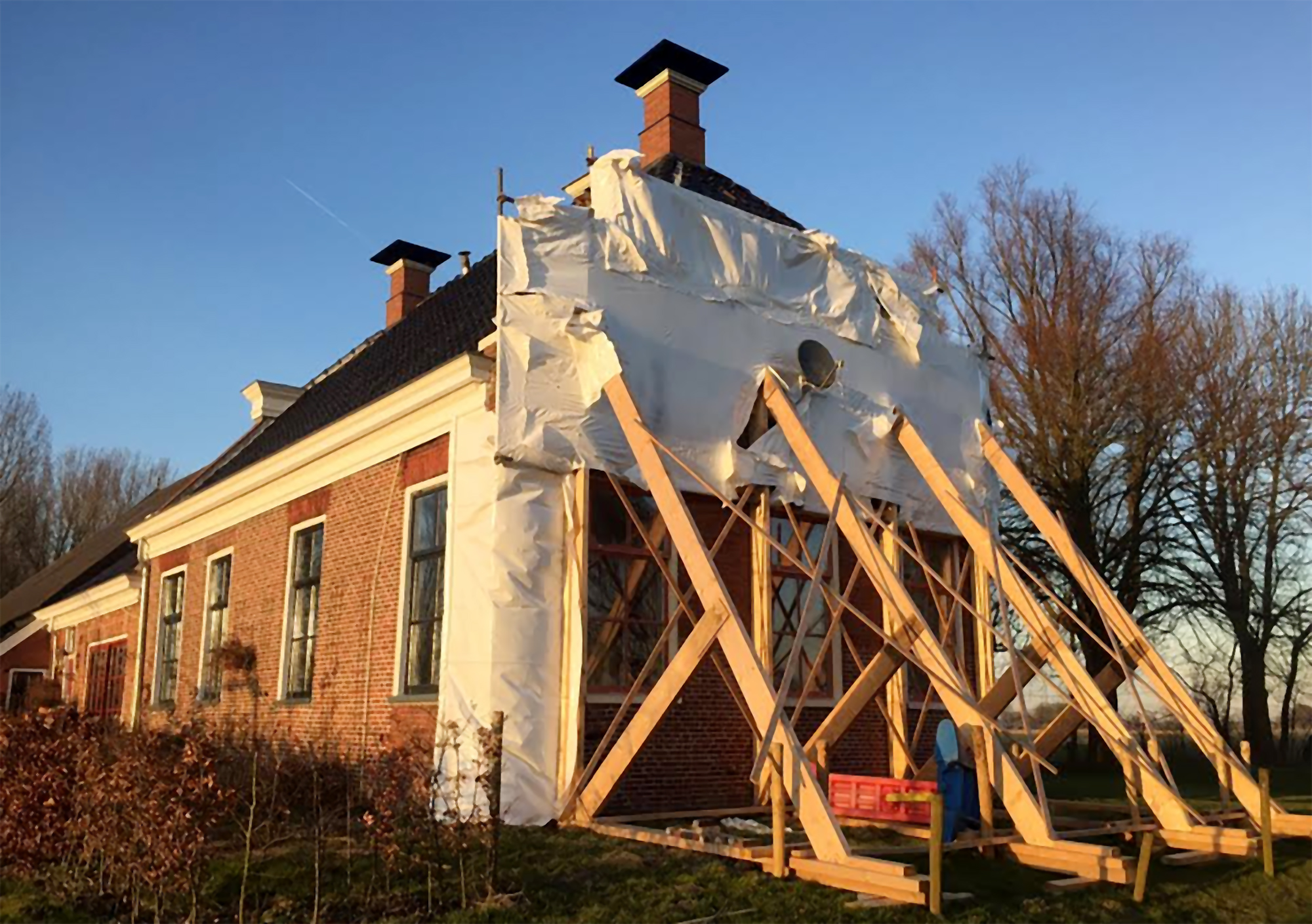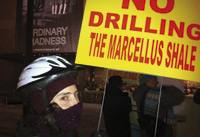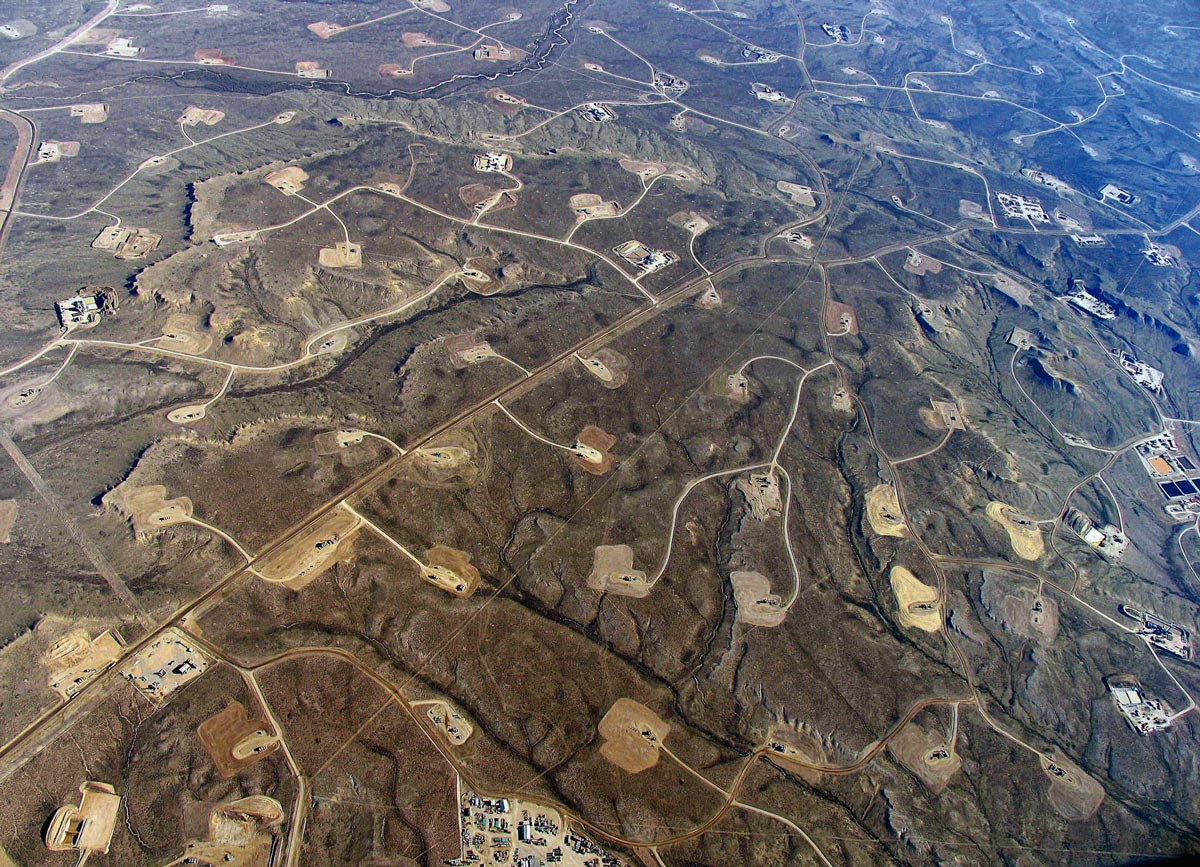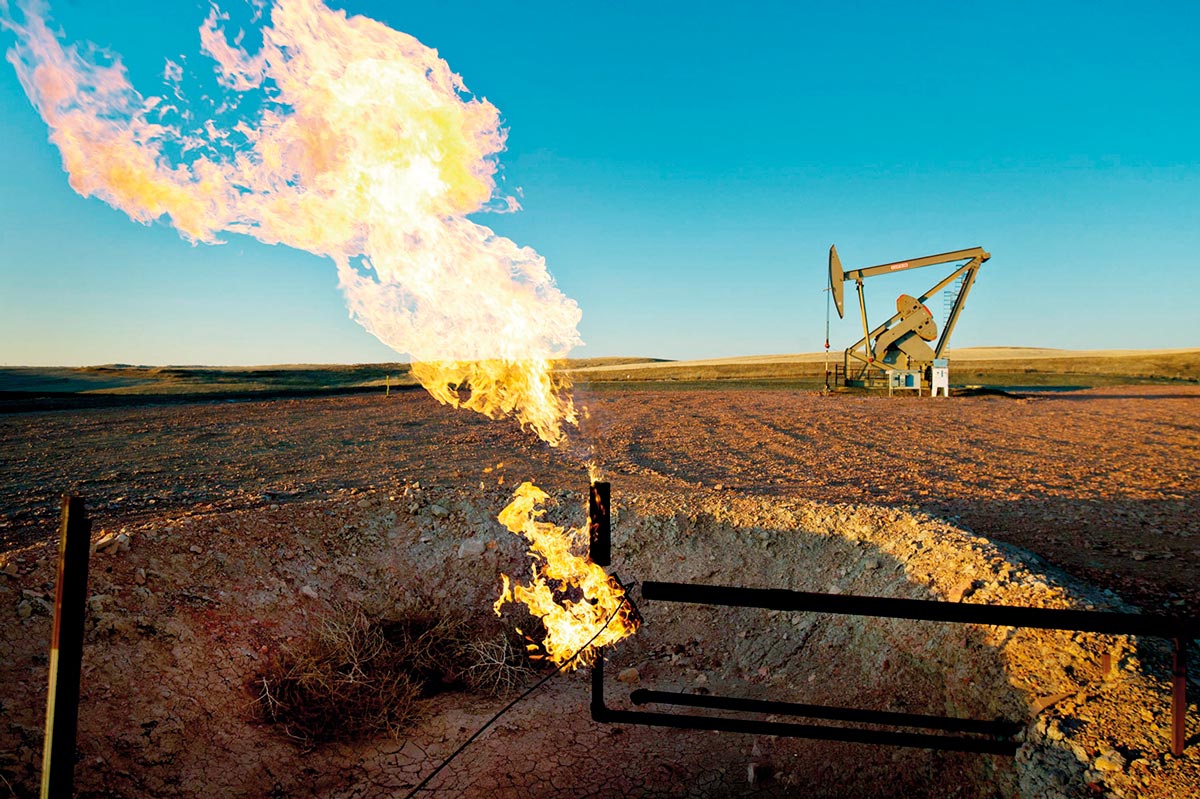"Big oil companies are getting rid of fracking investments"
- Born in León (Spain), physicist, has his usual work center at the Instituto de Ciencias del Mar in Barcelona. Although his daily field of study is physical oceanography, his concern about the consequences of the oil spike led him to create the blog The Oil Crash, which has become a reference source for understanding the keys to the energy crisis. Antonio Turiel does not hesitate in his commitment to fracking: “It’s a fraud.”

Can the thesis of the oil summit be briefly explained?
It is known that the production of a site in which oil is exploited does not remain constant and occurs as in a region, in a whole country ... at all scales. At first, as it's explored, the geological characteristics of the environment get better known -- production grows year by year. But at some point the production summit arrives, it is difficult to reach new places and the flow begins to decrease for physical and geological reasons. We can make efforts to increase production, there are a lot of techniques for this, but in the end more energy and more money is spent to get oil out than that same oil is going to bring. When the amount of oil coming out is too low, the reservoir is abandoned.
Too low and too expensive, right?
It is clear that the less difficult the extraction is. In addition, at first, large, easy-to-explode graves are used, then smaller, more difficult, more expensive... And finally, you're going to target the people who were left marginalized because they're very difficult to exploit or because they're environmentally dangerous, because you have nothing else. That's what happens with fracking.
Here we have the unconventional hydrocarbons that are extracted by hydraulic fracturing, the asphaltic sands environmentally so harmful ... You've already said on the blog that after that there's nothing else, which is the ultimate limit of illusion.
It's hard to make that prediction. There is always another resource that can be exploited, but... These are in poor condition, they are very difficult to get out and expensive. They are not economically profitable and exploited for despair; their cost has been financed by resources that still benefit. I would not say that nothing else will come later, I think there will be something, but increasingly marginal and of shorter duration. Fracking is a bubble that will last between five and ten years. It will not go any further.
That bubble has begun to explode...
Yes. The symptoms are very clear. The number of active wells in the United States has been reduced by 40% since last October. All inclusive, fracking wells but also conventional wells. That seemed to explode. There have already been bankruptcies, and as more happens, investors are going to be afraid, because they see that money is lost. The fracture suffered by the fracking in recent years will not be repeated.
In the Spanish State, however, a determined political commitment is being made in favour of it.
First of all, it should be stressed that in Spain there is no fracking, there is only gas fracking. And gas has many more limits, it's not a good substitute for oil, and its market is much smaller. They want to make people believe that things are going to be like in the United States, but what is exploited there by fracking, above all, is oil. And precisely oil is what Spain needs. Gas is expensive and its price is related to oil, but it is not the biggest problem for Spain, as Spain consumes mostly oil, from where it takes out half of the energy it consumes today and only 20% of the gas. The problem is that they want to somehow have a source of hydrocarbons in their homeland. A big bet has been made to achieve this. There's going to be some dark interest in it, but I think that's not the main reason, you've believed it, because you wanted to believe it. When you need something, it's easier to believe you're going to get what you need.
The reasons, then, are ideological.
Not even that. Here, from the very beginning, there is an ideological debate between the advocates of environmental conservation and the defenders of industrial development. But from the point of view of the business sector, I believe that rather than ideology drives despair, they need a means that guarantees supply at a reasonable price.
A few months ago he appeared in the Department of Energy of the Basque Parliament. You said, among other things, that it is impossible to return to the growth demanded by most political parties. How did they get you?
The reactions, in general, were quite curious. Someone thanked me for her appearance, because a lot of the things I told you I didn't know them. The PNV representative did not question the data he had given – among others, because they were data from official agencies – but he told me that he did not leave room for innovation. They knew that the wager was not in the long run, but that something had to be done.
Do you talk about fracking?
Yes. In any event, and with regard to the impossibility of returning to growth, no one wanted to address the issue, except the representative of Bildu. It is a taboo subject, not apt.
Isn't it surprising that politicians who supposedly have good advisors don't take into account the most basic laws of nature?
I know you know what I told you and you understand it. The question is whether or not they accept it, because it is politically unacceptable, the consequences of this issue on our economic and social structure are so radical. Who puts a cabel on a cat? In recent times I have heard some of those closest to Podemos that Podemos has not dared to question the principle of growth. It costs them a lot because they think that society is not going to accept it, and that's going to take away a lot of votes.
And why wouldn't society accept it?
After much to say that prosperity comes from growth, job creation, etc., it is not easy to start talking about growth, about changing the productive model... I always say in the talks that you can achieve a standard of living very similar to the present – with some significant changes, but very similar – by consuming much less energy. The point is that this has an inescapable condition, and there is the question: for that we must abandon capitalism, if not, not. That's the real difficulty: for many people, it's easier to imagine the end of the world than capitalism.
And instead of capitalism, what?
It's very difficult to answer that, and I don't think I'm the person best suited to it. What I can say is that it is not possible to maintain capitalism, because it is an economic system based on growth and because physically growth is impossible. We need another way of organizing, designed to generate well-being and meet people's needs, without the need for growth and not based on consumption. That would completely change. In capitalism, capital has the right to compensation that leads to interest and exponential growth. This must be eliminated and it is a radical change. The beneficiaries of this system, of course, will not agree, as they will think that they are harmed, but they must be made to understand that this cannot be done without further delay. It is not negotiable, nobody has asked for our opinion. Nature does not negotiate.
Let's go back to the fracking bubble. The large oil multinationals are releasing a number of assets.
Fundamentally, assets with doubtful returns are being sold. This is how they maintain profitability, but reducing their size. These assets, not all but most, are investments in fracking, tar sands, agricultural fuels ... They sell them or freeze them. In some cases, what these companies have is an exploration or exploitation authorisation with a specific maturity. And freeze that permission. Otherwise, they do what Repsol did in the Canary Islands. Repsol left a field of exploration and refused to explore a second area. For this reason, they had to pay a fine of EUR 5 million, but they prefer it, because if they continue to invest they would not be able to recover the investment. The same thing happens everywhere. There is a growing tendency to leave the authorisation zones unexploited. Money is lost, but more is lost if you try to exploit it.
The financial health of the big companies in the hydrocarbons sector may not be of great concern to many of our readers, but if you think well, it is scary to see them withdraw from what is said to be the new energy straw.
The truth is, yes. This means that there will be supply problems in the near future.
Very close?
Two to five years. Starting from the current situation, and if the trend does not change – it is difficult to change it – I foresee that global oil production could fall by 5-10% in two or three years’ time. It's no nonsense.
Uztailaren 12an New York Times-ek argitaratu zuen: “AEBetan fracking enpresak kiebra jotzen ari dira, iturrien inguruetan bizi direnei utziz pozoi arriskutsuzko kutsadurak eta herritar guztien bizkar hauek garbitzeko kosteak”. Kronikaren hasieran honako kasu bat... [+]
COVID-19ak eragindako anabasaren zalapartak eta klimaren aldaketak hedabideetan uzten dituen irudi beldurgarri bezain espektakularrek estalita, gutxi hitz egiten da petrolioaren krisiaz, tartean fracking-aren gainbeheraz. Bestela esanda, herritarrak ari daitezkeela eztabaidan... [+]
Orkestraren azken txostenak hainbat datu azpimarragarri dakartza enplegu munduari buruz; bestetik, Bizkaiko ekitaldi eta negozio erraldoi handiei lupa jarriko diegu, Pello Zubiria Argiako kazetariak frackingaren egoera EAEn aztertu du.







